Gishwati Bees Boost Rural Income as a Hive Nets RWF 320,000 Monthly
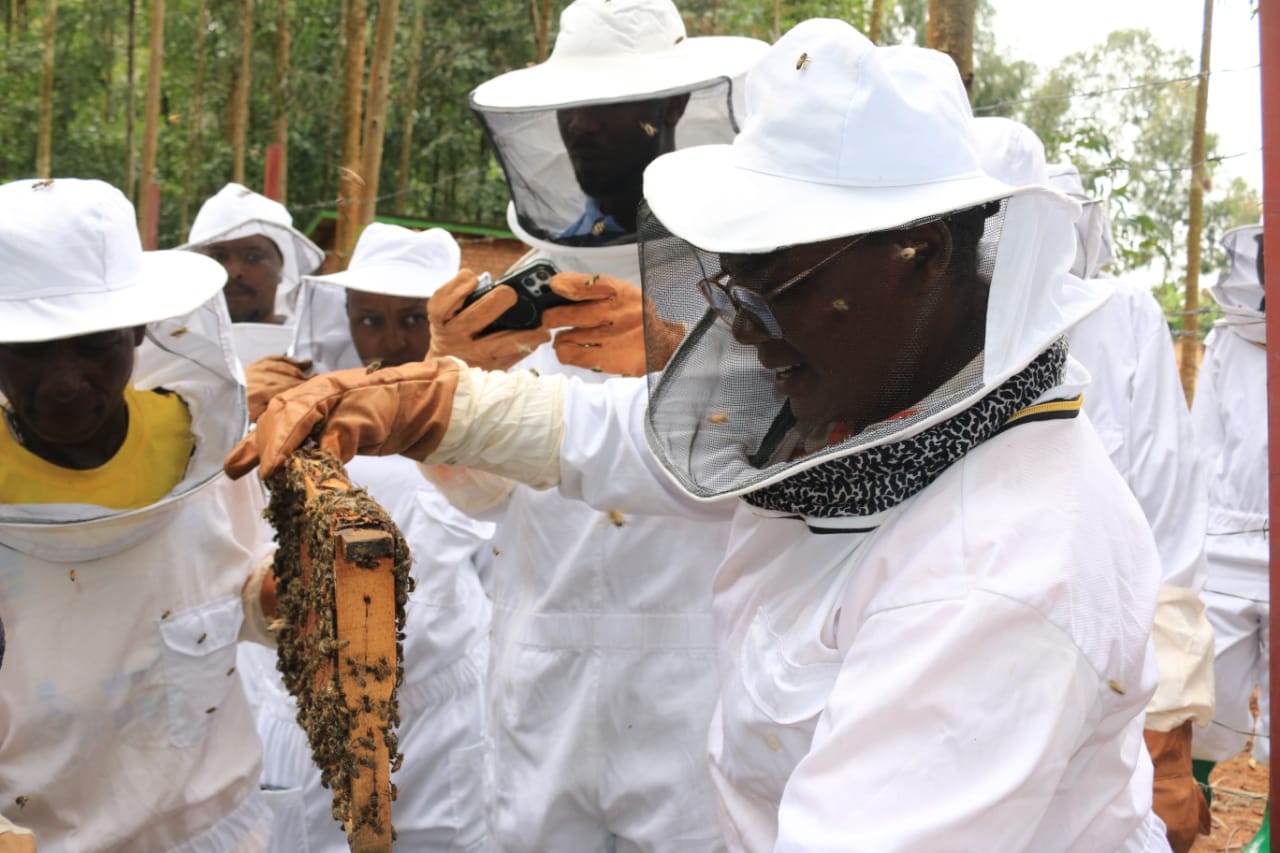
By Simon Kamuzinzi
In the lush hills surrounding Rwanda’s Gishwati-Mukura National Park, a quiet revolution is taking place — and it’s being led by bees.
Beekeeping, once overlooked and misunderstood in the region, is now transforming lives. Thanks to training from the Rwanda National Commission for UNESCO(CNRU), residents near the park, especially women, are reaping substantial profits while protecting biodiversity.
From Bee Foes to Bee Friends
For generations, many women in Rutsiro District viewed bees as dangerous and beekeeping as a man’s domain. But that’s changing.
Emelienne Mukasine, a beekeeper in Muhingo Village, is living proof. Alongside 33 other women trained in modern beekeeping techniques, she now sees bees as powerful allies — and her hives as mini gold mines.
“Under good weather conditions, one modern hive can produce 40 to 45 kilograms of honey every 15 days,” she explains. “That means up to 80 kilograms per month. At RWF 4,000 per kilogram — or RWF 5,000 from premium buyers — that’s at least RWF 320,000 a month.”
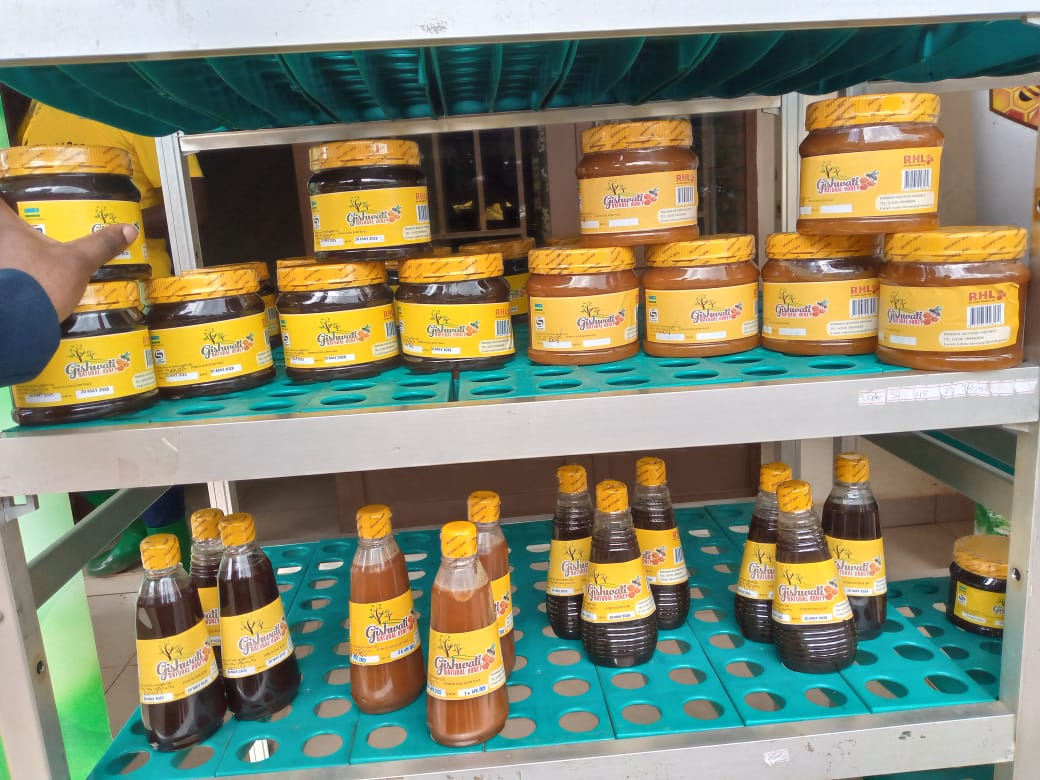
The income, she says, has helped her and others afford livestock, contribute to national savings schemes like Ejo Heza, enroll in community-based health insurance, pay for their children’s education up to university, and still have money left over for celebrations.
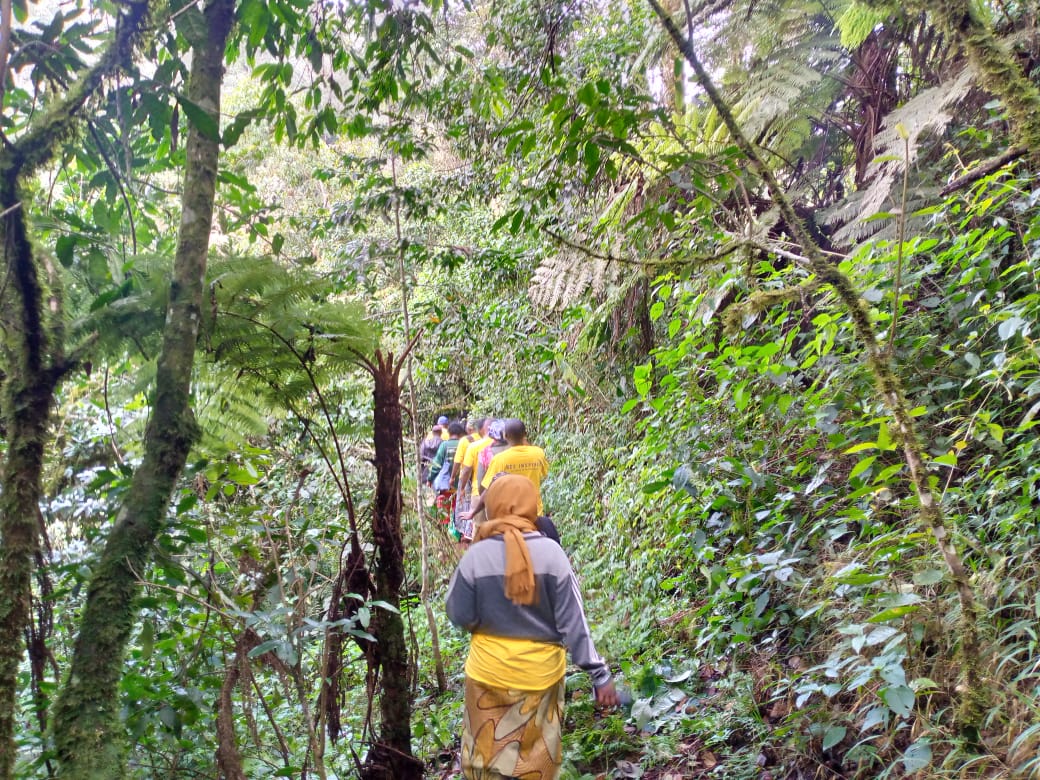
Honey as a Pathway Out of Poverty
The story is similar in Eastern Rwanda. Medard Ndashyikirwa, a beekeeper in Kirehe District’s Gahara Sector, owns 60 hives, each producing honey every 10 days. His annual revenue? Over RWF 2.5 million — roughly RWF 208,000 per hive per month.
These stories are prompting local leaders to take note. Rutsiro District’s Vice Mayor for Economic Development, Emmanuel Uwizeyimana, is now actively encouraging residents to pursue beekeeping, citing its low barrier to entry and impressive returns.
High Demand, Low Supply
Despite its potential, Rwanda’s honey industry faces a supply bottleneck.
Nyirakamineza Marie Chantal, The President of the Union des Cooperatives Apicole de Gishwati (UNICOAPIGI) and Director of RutsiroHoney Limited, says her factory currently processes only 45 tons of honey a year — a fraction of its 180-ton capacity.
“It’s not that beekeepers are few,” she notes. “But they need more awareness and support. Beekeeping is easy to integrate with other farming activities.”

She adds that increased production could reduce prices and encourage Rwandans to replace sugar with honey in daily beverages like tea and porridge, not just for taste but for health benefits.
A Sweet Alternative — and a Superfood
During World Bee Day celebrations on May 20, 2025, attendees were served tea and coffee sweetened not with sugar, but with pure Gishwati-Mukura honey — certified natural and free of additives.
Anita Nyirabyimana, one of the participants, was impressed. “Normally I use three teaspoons of sugar, but two of honey was enough. It tasted better, and I’d definitely choose honey over sugar now.”
Indeed, science backs her choice. According to the U.S. Department of Agriculture (USDA), honey is rich in essential vitamins and minerals:
B1 (Thiamine): Boosts brain and heart function.
B2 (Riboflavin): Enhances energy and detoxification.
B3 (Niacin): Supports digestion and immunity.
B5 (Pantothenic Acid): Reduces stress and boosts energy.
Vitamin C: Strengthens the immune system and protects skin.
Calcium, Potassium, Magnesium, Iron, Zinc, and Phosphorus: Support strong bones, heart health, muscle recovery, and blood function.
In short, honey is not just a sweetener — it’s a nutrient powerhouse.
Beekeeping for All, Everywhere
One of the most empowering aspects of beekeeping in Rwanda is its accessibility. According to Engineer Dominique Mvunabandi, head of Science, Technology, and Innovation at CNRU, anyone can be a beekeeper.
“All you need is a hive placed near vegetation where bees can forage,” he says. “Forests like Gishwati-Mukura, Nyungwe, and Akagera are ideal, as they’re pesticide-free and rich in flora.”
He adds that beekeepers have become guardians of these parks, as their livelihoods depend on the bees that feed there.
No Bees, No Food
The importance of bees extends far beyond honey. Bees are essential pollinators, transferring pollen from male to female flowers — the key to fruit and seed production.
The UN Food and Agriculture Organization (FAO) estimates that over 90% of global crops rely on pollination by bees, butterflies, birds, and bats.
Dr. Venuste Nsengimana, a biologist and lecturer at the University of Rwanda, underscores this point: “Without bees, you wouldn’t have mangoes, avocados, beans, or even maize.”

Bees also help maintain green landscapes, combat climate change, and keep our air clean — making them vital to environmental health and food security.
A Call to Action
This year’s World Bee Day theme — “Bee inspired by nature to nourish us all” — comes with a warning.
Journalist Marie Clemence Cyiza Uwimanimpaye, Founder of EarthRwanda raised alarm over the use of pesticides in farming, which are killing off bee populations.
“In areas where bee populations have almost disappeared, farmers are now hand-pollinating flowers,” she lamented. “It’s exhausting and unsustainable.”
Dr. Marie Christine Gasingirwa, the Chairperson of Rwanda’s Commission for UNESCO, also emphasizes the importance of food safety and quality.
She underscores that farmers must collaborate with decentralized local authorities to prevent the misuse of agricultural chemicals, which pose serious risks to human health.
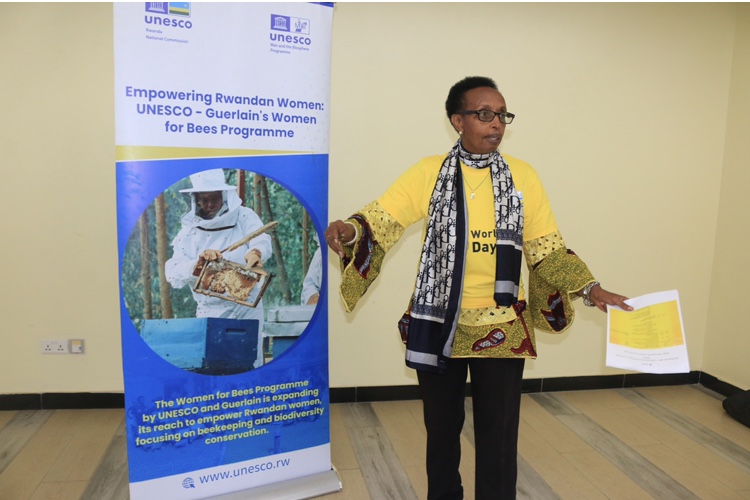
She explains, “Agricultural extension officers and advisors serve as bridges between farmers and higher institutions such as MINAGRI (Ministry of Agriculture), RAB (Rwanda Agriculture and Animal Resources Development Board), and NAEB (National Agricultural Export Development Board). They convey farmers’ concerns and aspirations to these institutions, which in turn provide guidance and support.”
Editorial:
As Rwanda looks to its forests and fields for sustainable development, the message is clear: where bees thrive, so do people. And with the right support, beekeeping could hold the key to both ecological resilience and rural prosperity.
Related Articles
Strengthening Rwanda’s SMEs for Circular Food Systems: Embedding Circularity Beyond Project Implementation for Long-Term Transformation
As Rwanda advances its circular economy ambitions, small and medium-sized enterprises (SMEs)...
Powering Food, Restoring Land: How Renewable Energy and Regenerative Agriculture Are Transforming Rwanda’s Farms
Across Rwanda’s rolling hills, a quiet revolution is underway. It begins in...
Late February Weather Alert: Heavy and Above-Average Rainfall Forecast Across Rwanda
The Ministry in charge of Disaster Management (MINEMA) has issued a weather...
GBOX Launches AI Literacy Initiative to Support Rwanda’s Digital and Sustainable Development
A new Artificial Intelligence (AI) literacy program has been introduced last week...









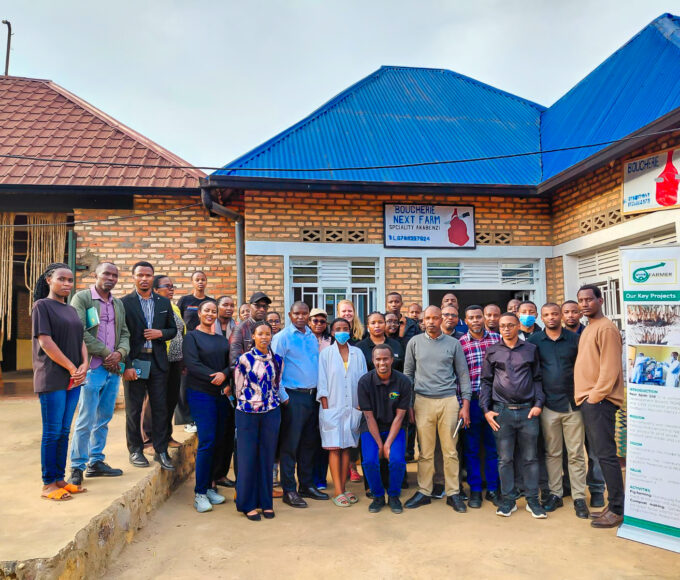


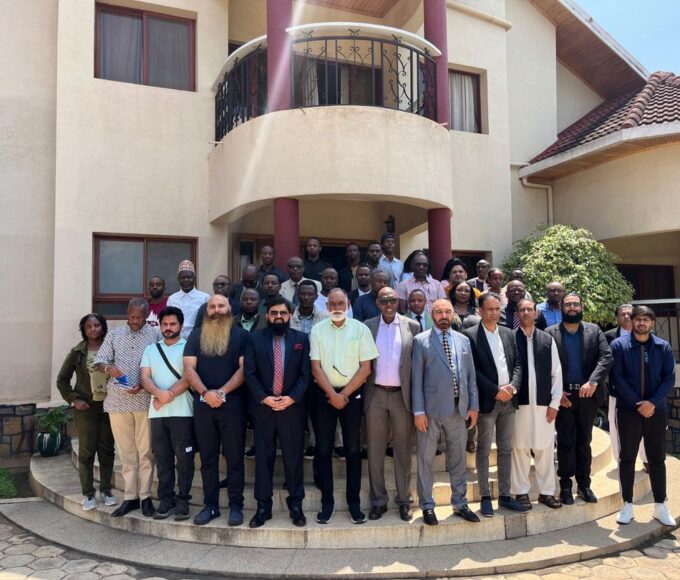
Leave a comment